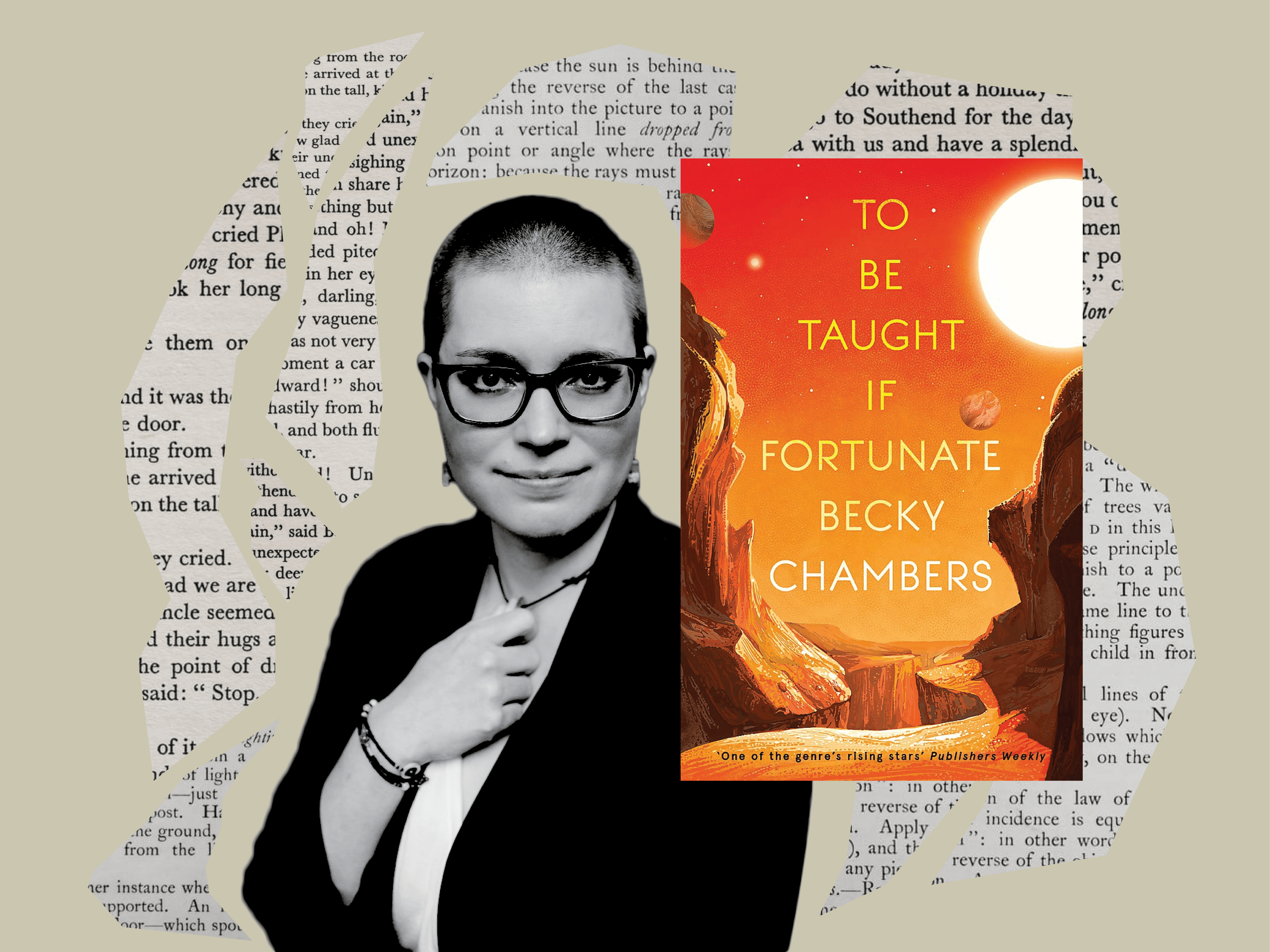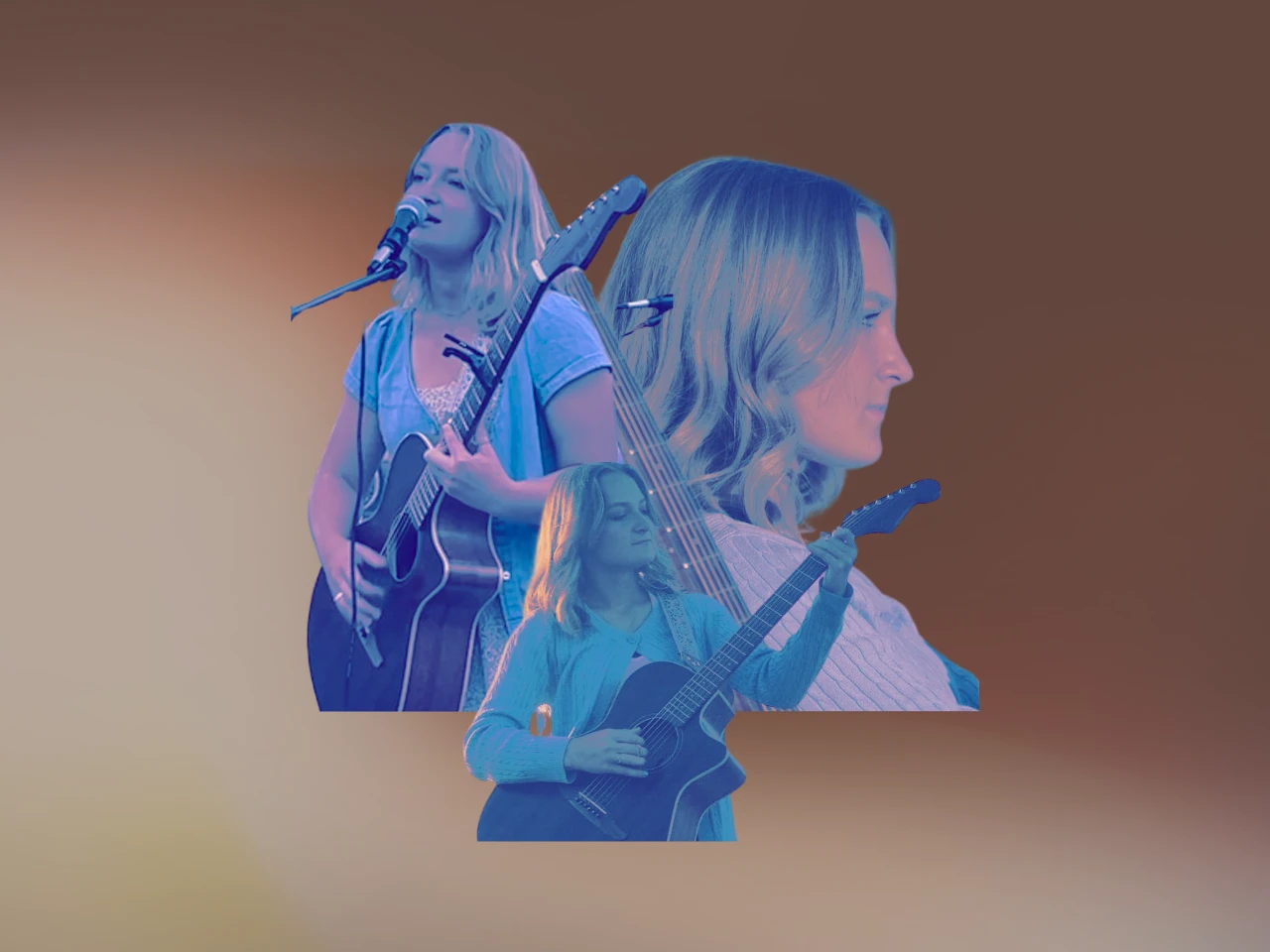“Content like I could never remember being. I was surrounded by people I loved, safe in a place free of noise and performance and the empty trappings of civilisation. Here, nobody cared about status or money, who was in power, who was kissing or killing whom. There was only water, and the wonders living within it. The right things mattered on Aecor. I’m a secular woman, but that moon felt to me like a sacred place. A monastic world that repaid hard work and dogged patience with the finest of rewards: Quiet. Beauty. Understanding.”
Becky Chambers’ To Be Taught, if Fortunate is a sci-fi novella centering around its four main characters as they venture beyond our known solar system. Through four destinations and four star sailors sharing a love for science, the book is the host of an almost-poetic experience.
The book ends like how most stories begin: with a question and a quote. Ariadne, the narrator, ends her narration by asking, after relaying the whole story, diving deep into each of the characters’ stories. And instead of the usual epigraph, the quote coming after the final line leaves the reader reeling but also satisfied. A final oh as it reflects the dichotomies in play throughout the novella. The ending, open-ended but resolute, echoes the entirety of the book perfectly.
At first, the wonderful representation was what captured my attention. An asexual character! A sapphic couple whose story arcs didn’t center around their sexualities but are still important parts of their identities! The casualness of it all, of seeing myself without particularly seeking myself out was a quiet, pride-filled moment. Seeing these characters share a language that wasn’t rooted in oppression was a refreshing experience.
Chambers also captures the sheer difficulty of understanding life outside our comprehension, of possessing a vocabulary that isn’t nearly enough to truly interpret life and what lies beyond it. Through Ariadne’s narration, life on other planets is described with the awe and the sorrow that the crew felt, so along with understanding the dynamic of the exoplanets, the reader empathizes with them on an emotional level, which makes the experience of reading the book all the more authentic. It puts the tense and quiet moments in the forefront, the unpleasant in the disquieting in a slow but ever-moving tone.
Even the expository parts were blended well with introspection, creating a charming tone that pushes the narrative forward. Chambers humbles us with a hopefulness. In four tender chapters, To Be Taught, if Fortunate manages to be optimistic even in a catastrophic backdrop. It’s an honest optimism, it doesn’t let go of the deadly events or the periods of heavy grief, doesn’t shy away from its ugliness, but it manages to be optimistic through that. And it’s especially nice to be reminded of that at this time.
From “I let go of one of my handholds. I raised my finger, traced it over the stars. God, they were beautiful. How had something as crude as us ever come from something so beautiful?” to “If I ask what I’m asking only of people who agree with me at the outset, with whom I already share a dream and a language, then there’s no point in asking at all.”
to “Either way, we will carry this torch. All we’re asking is: where will it burn brightest? We leave that question to you.”
Through the breathtaking prose, we are reminded to love the questions, to live them. In a land where global conflict is white noise, we are reminded of our capacity to connect, of using optimism as a tool to push forward. In pursuit of these questions, in a lifelong act that is equipping ourselves with a language, Chambers shares with us the joys and comforts of sharing it.
Zo is a writer, poet, Humanities student and calligraphy enthusiast, with a love for clouds, poetry and memoirs. Her work appears in Flat Ink, Cathartic Lit and Blue Marble Review and she is a poetry editor and staff writer for The Global Youth Review. They are a big believer in the arts as a language for communication and connection and can be found immersed in a movie soundtrack or panicking about college.
Art by Sako Antonyan, website here



